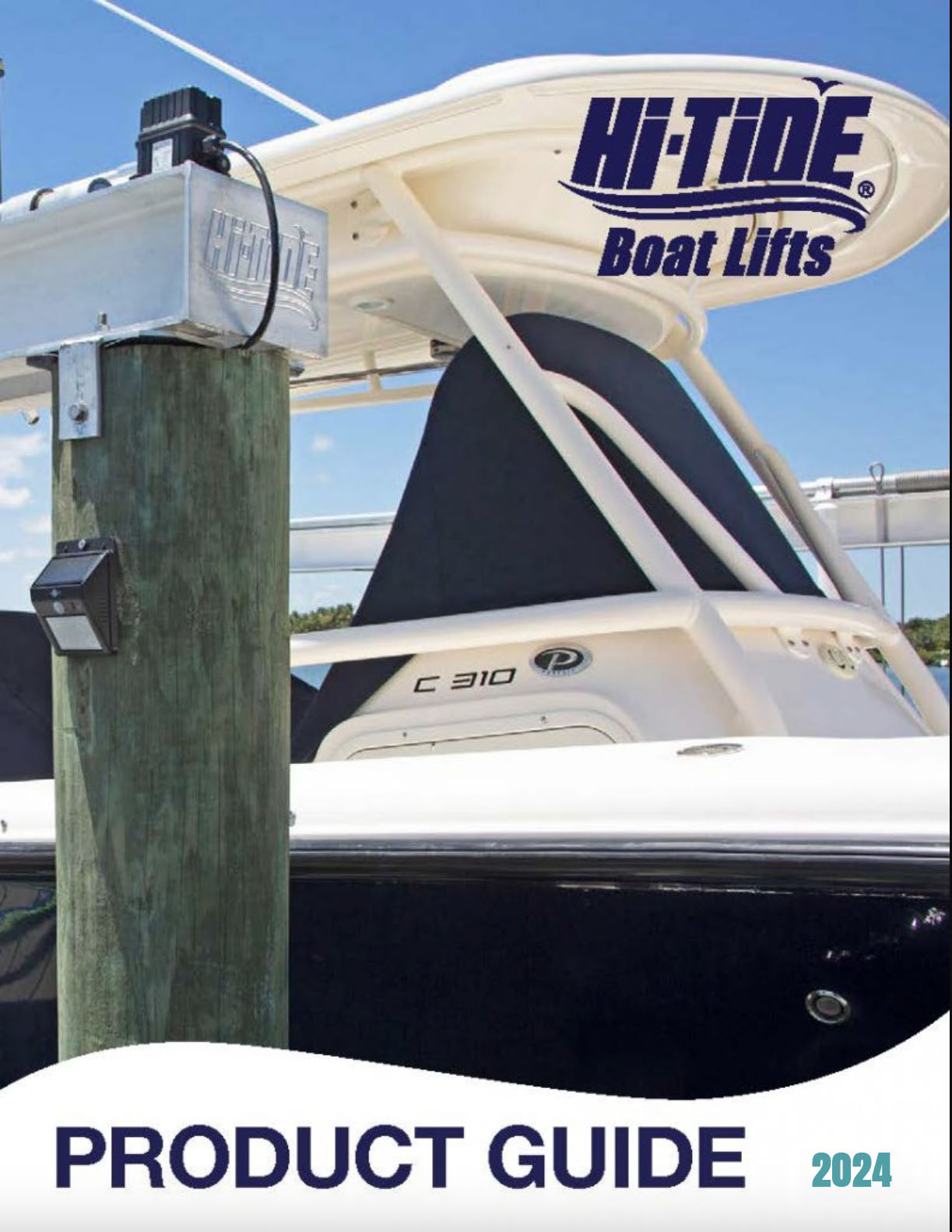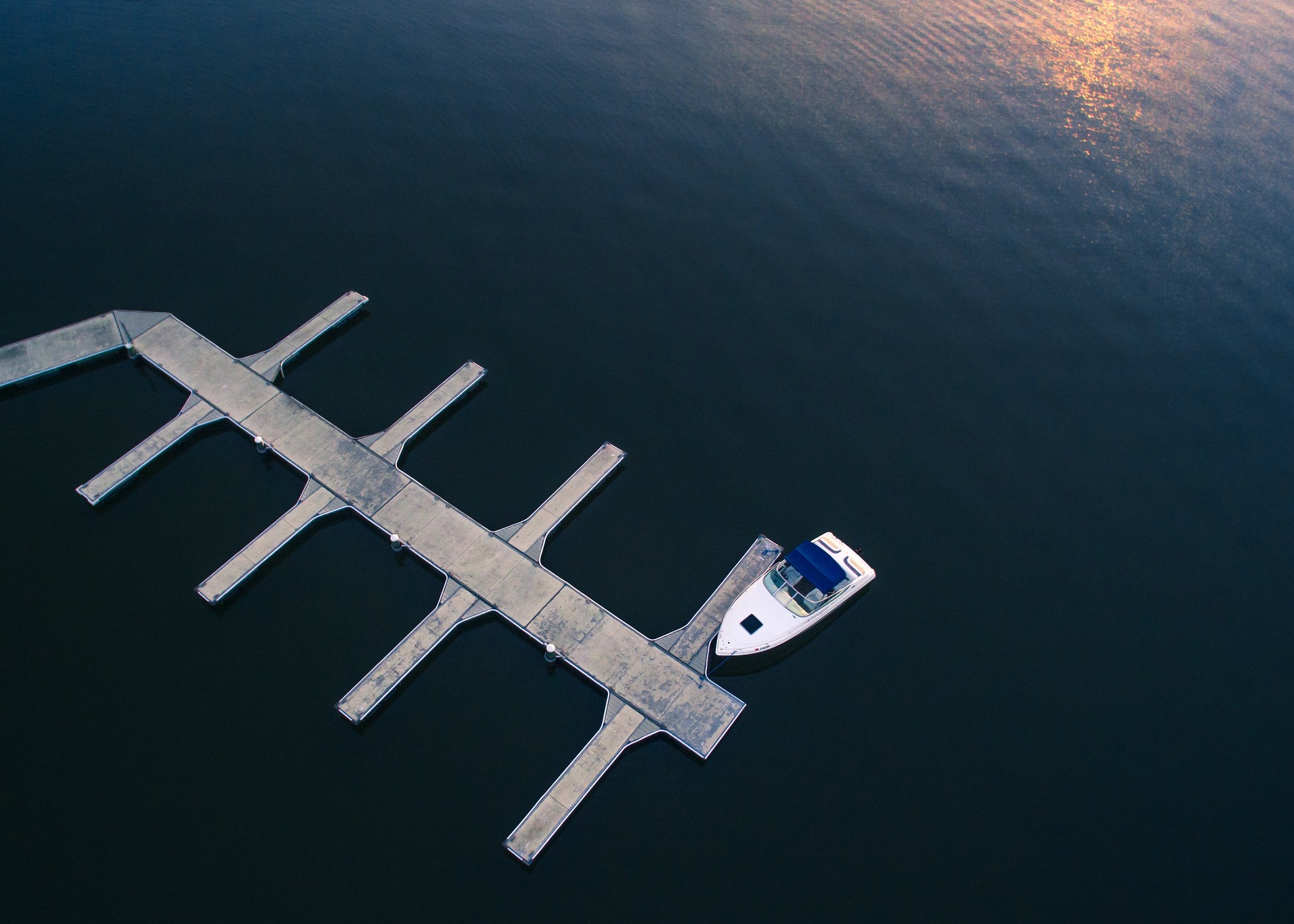
You pack up your bags and set off early for a day of fishing with your best buds. After a drive to the dock, it feels great to be by the sea again, salted breeze blowing through your hair, sun lightly kissing your fa– wait a minute. Where did the boat go? It was docked right there just a few months ago. You peer down into the spot that you could have sworn was the last placed you parked “Marla’s Majesty,” only to see her resting on the seabed.
Well, the good news is that this horror story doesn’t have to become your reality. Though this very tragedy is anything but rare, there are steps that you can take to keep your boat afloat when you’re not regularly hitting the water.
How to Keep Your Boat Afloat
Fittings are a major culprit in many a sinking boat case. Leaky underwater fittings, air conditioning fittings and other above-water fittings can be big trouble for your boat. Check them thoroughly before leaving your boat docked.
Beware of rainwater (or melted snow). Water that is not properly draining from your vessel can easily (and dangerously) weigh down your boat. This is also a danger when out on the water, as you may overload a boat that is already being weighed down with undrained water (leading to you and your friends taking an unexpected swim).
Use a boat lift. Though not a substitute for maintenance and regular inspections, a boat lift can help keep your boat from getting stuck under or damaged on the docks — a common cause of boat sinking incidents.
It is especially important to give your boat a visit after heavy rains and big storms, as winds can damage improperly secured vessels and, as mentioned above, rainwater can add significant weight that may sink your boat if it is not draining correctly. With a little attention, you can spot dangers that would otherwise sink your hopes of a good time on the water this summer.

Spring–the season of warming weather, the cleaning out of closets and, as it turns out, creating a commissioning checklist to get your vessel ready for heavy usage come summertime. Back in December, we also recommended you get a checklist together, but it’s already about that time to give your boat a bit more TLC than you ordinarily would throughout the year. With some help from Discover Boating’s extensive list of items to add to your commissioning checklist, we will highlight some of the most important to-dos before summer is in full swing.
A Commissioning Checklist Worth Checking
- Hull Assessment: Inspect your vessel’s hulls from front to back and top to bottom. Look out for noticeable damage, blisters in paint and stress cracks, all of which should be addressed before your next trip to avoid more costly fixes down the road.
- Corrosion Check: As we’ve discussed before, corrosion can be a major problem if you do not properly protect your vessel from it. Inspect your vessel, especially your engine and cables, for signs of corrosion and replace parts as necessary.
- Leaks Inspection: Check your lines and hoses for leaks, especially your fuel lines, tank and filter. Lines should be free from cracks or stiffness that could soon lead to damage.
- Safety Update: Thoroughly inspect all safety equipment, including personal flotation devices, fire extinguishers and flares. If any of these items are damaged or out of date, replace them immediately as you never know when you’ll need them next.
- Paperwork Review: Check that your boating license, registration and insurance policy are all accurate and up to date before you hit the water.
If you’re still unsure what needs to be on your specific commissioning checklist, we’d recommend asking a fellow boating friend for a bit of advice in the matter. Though each boat’s specific needs and points of concern will vary, a friend may be able to point you in the right direction as far as finding that one last list item that you completely forgot to add. Though Floridians are fortunate enough to have summer-like weather all year long, there’s just something in the air during our summer months that begs us to spend our days cruising, fishing or simply relaxing on the water. Avoid a boat-load of stress by ensuring that your vessel is up to snuff before you plan your summer boat trip.
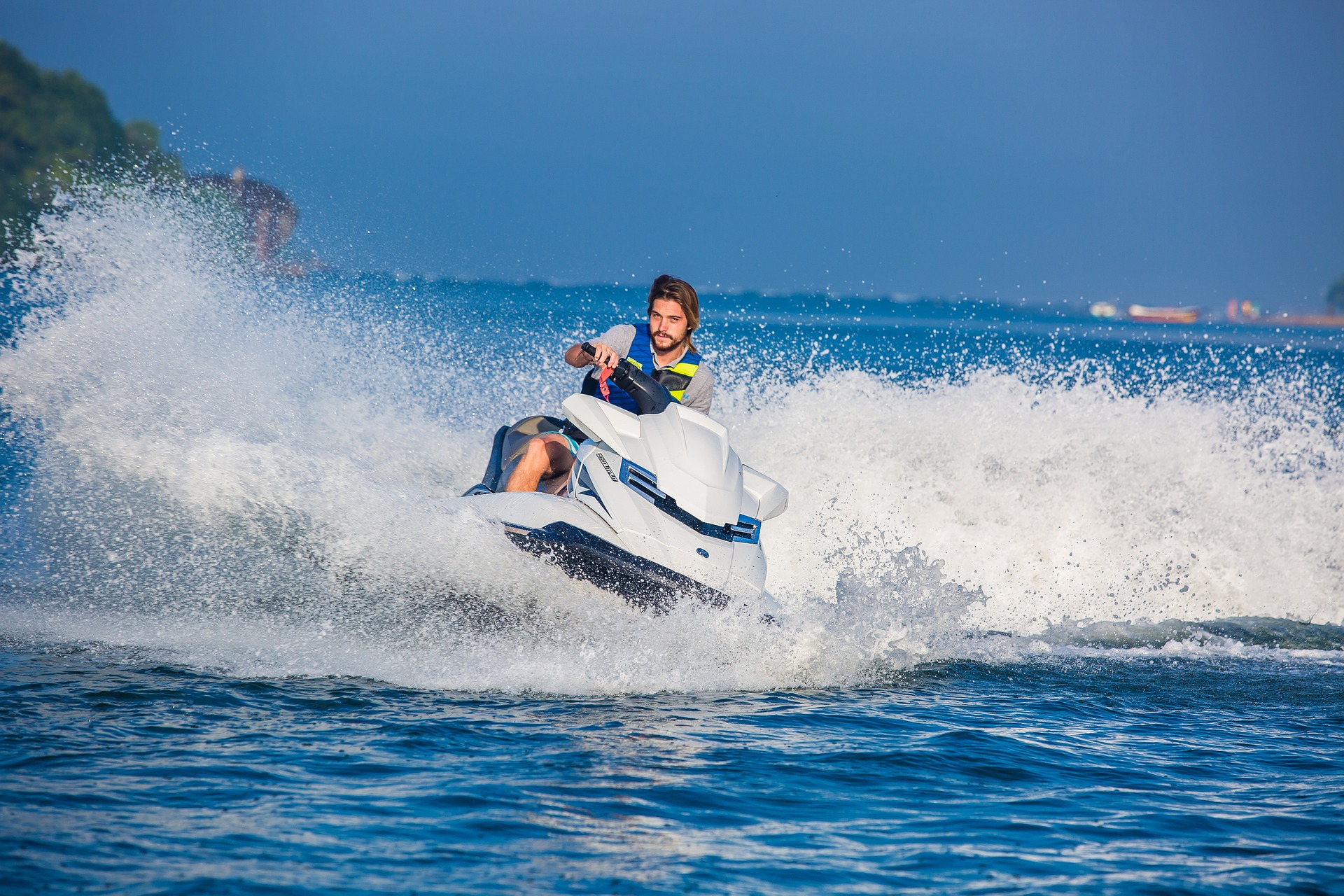
Maybe you already own a boat or perhaps you’re a brand new dabbler in the watercraft scene. Either way, you may be looking for a bit of guidance before buying a jet ski, since they and other personal watercraft (PWC) come with their own set of unique considerations to take into account. These vessels may seem a bit intimidating and can cause a bit of apprehension before diving into the specifics of ownership. Taking that into consideration, we’ve all marveled at jet skis zipping across the open water; why not explore what it takes to get in on the fun yourself?
Tips to Consider Before Buying a Jet Ski
- Do Your Homework: Like any other purchase, you should always do some research before buying a jet ski or other PWC. Though not as pricey as full vessels, there is little worse than investing in a PWC that goes unused or underused. Consider speaking to dealers, consulting with friends that own PWCs and even renting a jet ski for an afternoon to see if you like how they perform on the water.
- Utility: How many people do you plan on cruising with? Similar to motorcycles, seating is often limited on jet skis and PWCs; some can handle having up to three people, including the operator, on board.
- Don’t Forget Safety: When buying a jet ski or PWC, many forget to consider safety equipment and boating regulations. For instance, jet ski operators must have an engine cutoff switch lanyard attached to their person, as well as wear an approved personal floatation device.
- Need a Lift?: Though you may think finding a boat lift for such a small vessel as a PWC or jet ski would be a time consuming and difficult task, you’d be wrong. We offer a variety of options that are custom made for PWCs. Built with the same strength and durability as our big boy boat lifts, getting a lift you can trust shouldn’t even be a concern after buying a jet ski.
Taking a look at the numbers, PWC accidents and fatalities were lower in 2014 than they were in years past. Even so, we always recommend you always enjoy the water with safety in mind. After doing a bit of research, considering what your needs are, remembering the necessary steps to safety and finding the right lift for your prospective vessel, you may just be ready to enjoy a jet ski adventure or PWC excursion this summer.
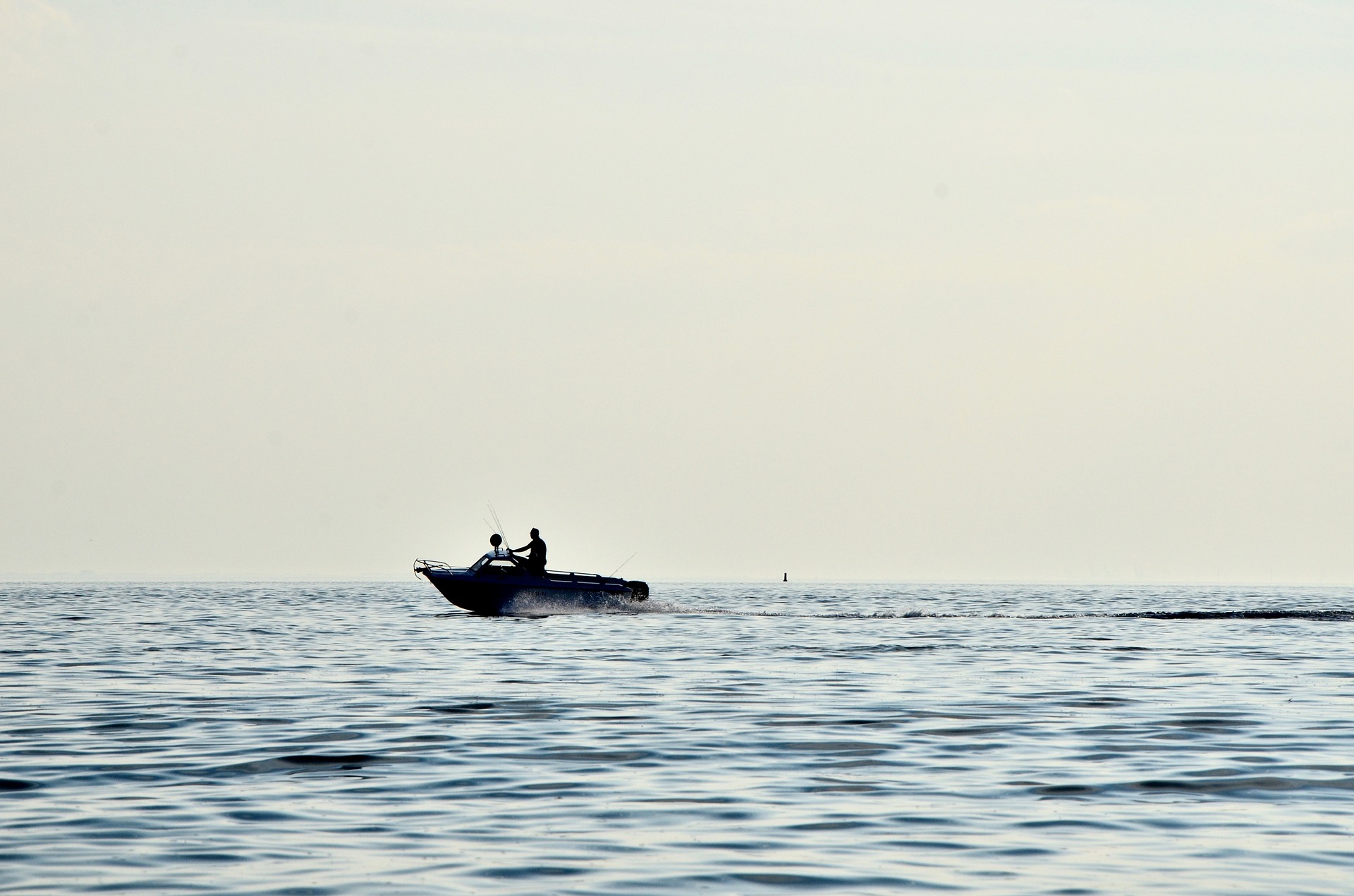
So, you’ve got a brand-new boat, put in your training time and are ready to hit the water on your first boating trip — or are you? The truth is, even the most experienced boaters should be open to advice from other aquatic aficionados, but new boaters should be especially available to soak in the wise words of boating pros. We dive into key tips for your first boating trip that can help you not only have a great time, but also a safe one while on the water with the ones you love.
10 Tips for Your First Boating Trip
- Keep a boating journal/ship’s log. Though you may think packing a pen and pad is outdated, a ship’s log is incredibly valuable for keeping track of your boat maintenance, performance, and fuel economy, while also acting as an easy way to remember your favorite routes or agendas for the perfect boating trip.
- Bring more water and snacks than you think you’ll need for your trip. No one wants a bad case hanger (hunger anger) when you’re trying to have some fun on the water.
- Don’t invite too many guests on your first boating trip. Larger headcounts can lead to more distractions and stress when you’re still mastering your way on the water.
- Study and make a plan for your first boating trip before you even leave the house. Know the route and landmarks to look for in case your GPS fails you.
- Ensure that your boat has all required safety equipment onboard and correctly installed. Though these vary, many can be found online for reference, as Florida’s safety standards are.
- Utilize the internet for research. Never before has so much information been at our fingertips; take full advantage of it. Trusted online resources, such as Discover Boating, are fantastic ways to find answers to questions or sift through a few top-tier boating tips for your first boating trip.
- Don’t skimp on the sunscreen. Even on cloudier days, being out in the elements can be incredibly destructive to your skin if you don’t protect it.
- Have an emergency plan in mind. Know exactly how to call in an emergency, where your extinguishers and first aid kits are and how to activate a distress beacon. You can never be too prepared for an emergency on the water.
- Make friends before your first boating trip. The boating community is a big family, and one that is known for its helpfulness in sharing our passion with newcomers. Never be afraid to ask for advice from shop owners or others that may have more experience on the water than you do.
- Don’t forget to relax. Boating can be a truly life-enriching hobby if you follow safety standards and let yourself have a great time with loved ones.
Your first boating trip may be intimidating, but there is an entire community of boaters just waiting to offer advice that may just keep you afloat. Above all else, keep safety in mind, follow the posted speed limits and always stay aware of your surroundings. Understand that the unexpected can happen, whether it be a freak storm or a fire on deck. Prepare for the worst, but once adequately safety-conscious, enjoy your first steps of this lifestyle enjoyed by thousands around the world. Happy boating!
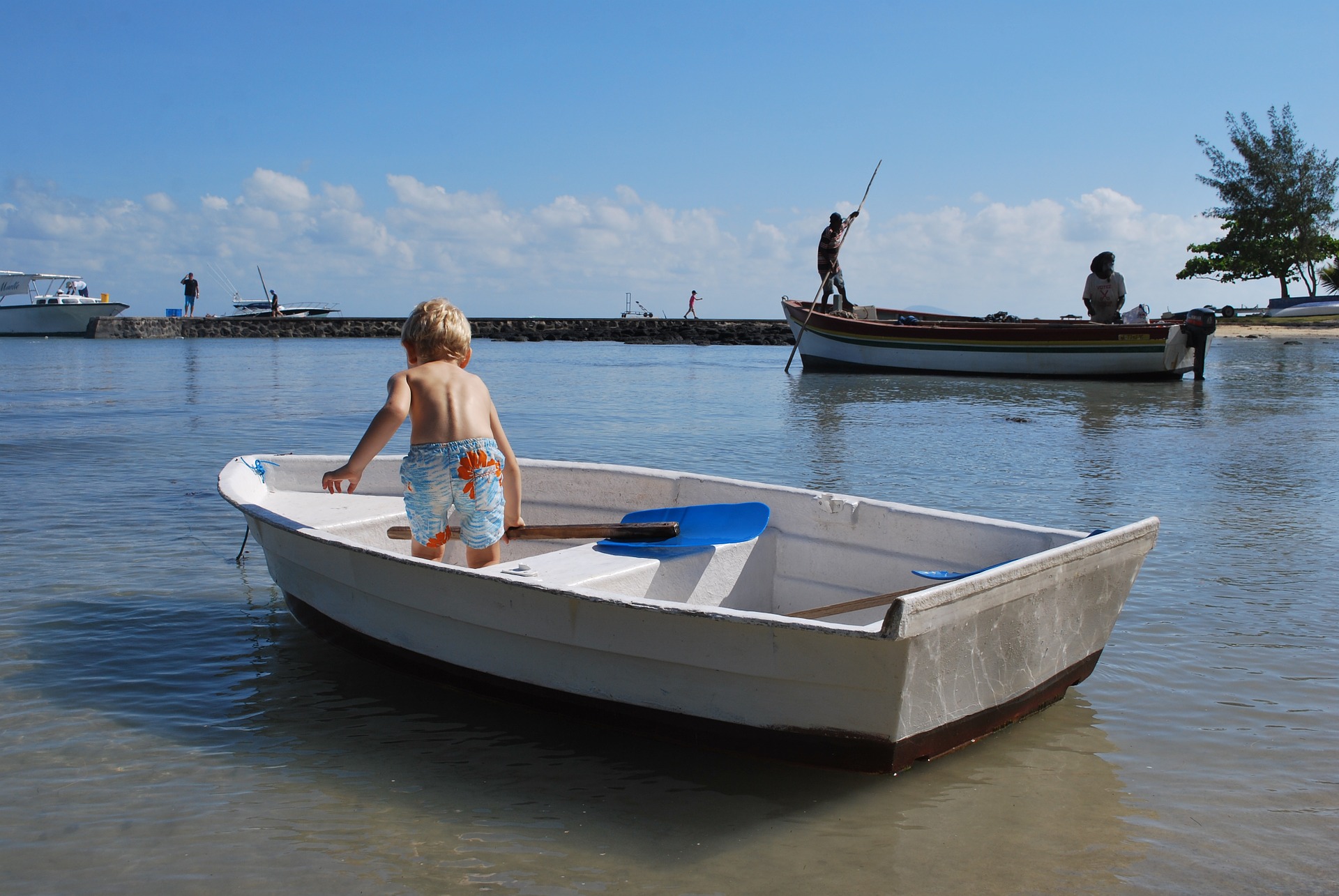
Boating is a treasured pastime that many boating and fishing enthusiasts around the globe enjoy passing on to the next generation. There is nothing quite like sharing the experience of being on the water with your family and, hopefully, inspiring them to share this passion with their family someday. Though boating is a perfect family outing activity, it is not one without risks that you need to consider in order to keep your kids safe. For that reason, we compiled a list of helpful boating safety tips for kids that can help make your day on the water as safe as possible for the little ones.
Boating Safety Tips for Kids
- Life Jackets Save Lives: We have recommended them before but this is a point worth repeating: you must have enough life jackets onboard for everyone. Before hitting the water, have your child try on the life jacket to ensure that it fits correctly, then enforce the use of it while on your trip.
- Swimming = Safety: Get your kids comfortable with swimming by enrolling them in swimming classes. It is also essential to teach them the dangers of swimming in open waters versus swimming pools. Many kids don’t know the dangers of currents, waves and weather — all factors that can be big dangers to both children and adults.
- Never Out of Sight: Even when stationary, keeping an eye on your kids should be a top priority, as waves, wind or even just the rocking of the vessel can easily send an unsuspecting child overboard.
- Do Your Due Diligence: Don’t skimp on the safety basics that you should be practicing as a responsible boater. Keep up-to-date on maintenance, install carbon monoxide sensors and always ensure that your boat is equipped with enough fire extinguishers. This, with performing regular fire drills, can protect your family while on the water.
As you probably realize, many of these aren’t just boating safety tips for kids, but lessons we can all take with us while on the water. Just remember, preparation is a major key to boating safety. Take the time to purchase and install the right equipment, practice good safety habits and keep an eye on your little ones whenever enjoying a day of boating. We have a responsibility to the next generation of boaters to ensure that they learn how to enjoy our pastime the right way — with safety always in mind.






